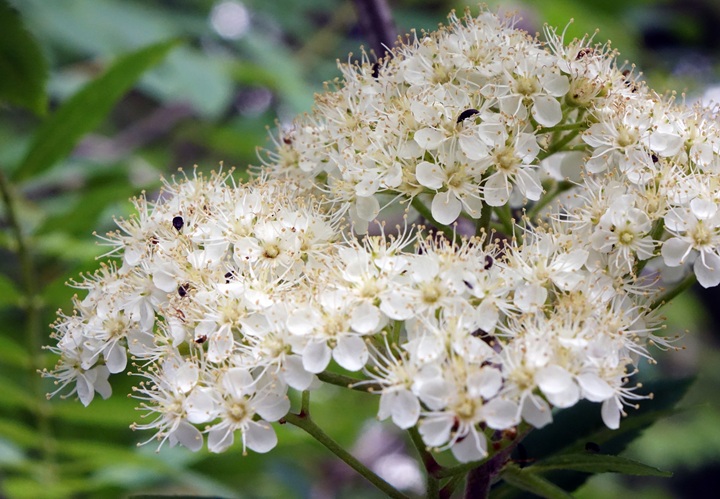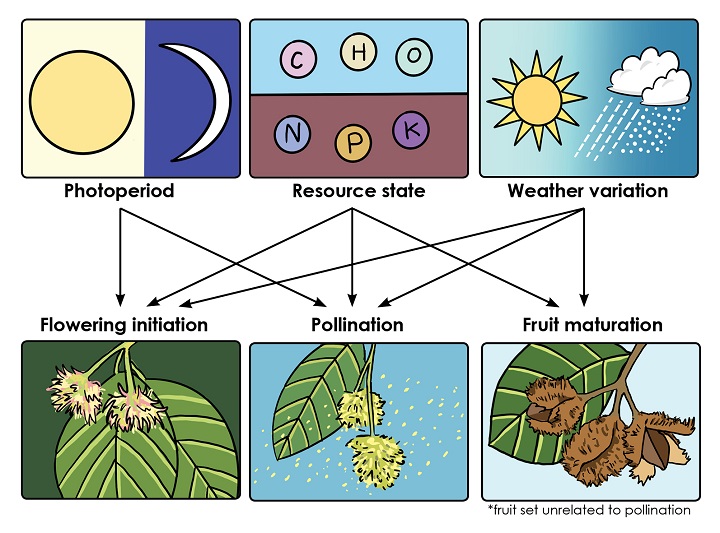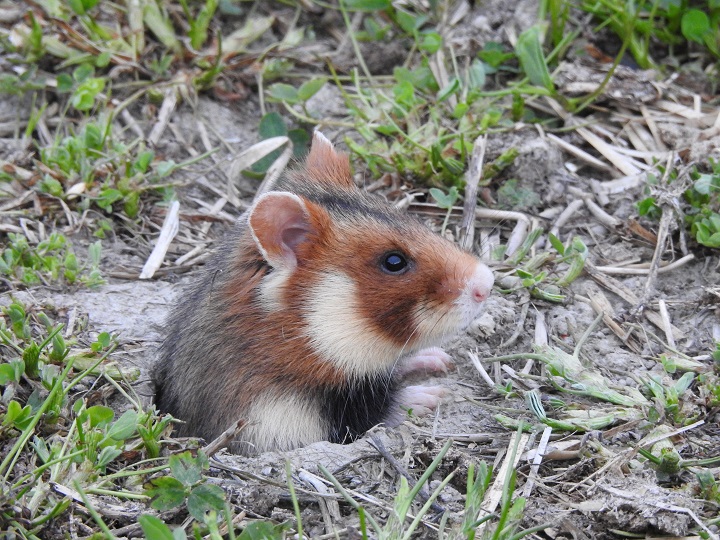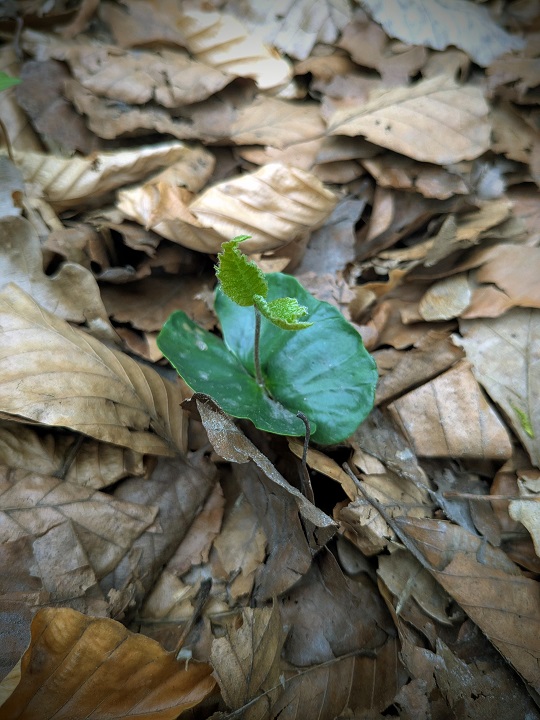In a new study published in Proceedings of the National Academy of Sciences, we show that in temperate European forests, years of seed failure are more strongly synchronized over space than mast years with high seed production. Using 36 years of data from over 400 sites and seven dominant tree species, we demonstrate that regional coherence in tree reproduction is driven primarily by synchronized seed scarcity, not abundance. Among-species synchrony was largely local, suggesting that forest diversity buffers food webs against continent-scale boom–bust dynamics. Our findings highlight the ecological importance of widespread reproductive failure and have implications for wildlife dynamics, forest regeneration, and seed sourcing under climate change. Read the paper here!
Ecology letters: No refuge for European beech reproduction at the cold edge
Reproduction is essential for forests to recover from disturbance and adapt to climate change, yet it is often overlooked in climate impact assessments. Our new study, published in Ecology Letters, shows that climate warming has likely already reduced the natural year-to-year variation in seed production of European beech (‘masting’), with declines of up to ~54% under current conditions. Looking ahead, these losses could become even more severe, reaching up to ~83% under moderate future warming scenarios. This matters because strong fluctuations in seed production help trees pollinate successfully and overwhelm seed predators, ensuring enough viable seeds are produced. Importantly, the strongest effects are expected at the colder edges of the species’ range. Thus, contrary to common assumptions, cooler regions and high elevations appear to offer no safe haven: reduced seed production is likely to limit forest regeneration, species movement, and long-term forest resilience as the climate continues to warm.
Read the paper here!
Oikos: masting and insect pollination
Our new study, published in Oikos, shows how flexible pollinator communities sustain reproduction in the mast-seeding tree Sorbus aucuparia. Despite large year-to-year swings in flowering intensity, pollination efficiency remained high, driven by dynamic shifts in pollinator composition. Bumblebees dominated during abundant flowering, while solitary bees became proportionally more important when flowers were scarce. These results reveal that pollinator life histories and network flexibility buffer animal-pollinated trees from pollination failure, helping explain why strong masting can evolve even in insect-pollinated species.
👉 Read the paper in Oikos.
Nature Communications: global drivers of perennials reproduction
The press release associated with the paper!
Global study reveals how weather drives plant reproduction—and how climate change may disrupt it.
A major new study published in Nature Communications has uncovered the global patterns linking weather and reproduction in perennial plants. The research, led by Valentin Journé and Michał Bogdziewicz from Adam Mickiewicz University in Poznań, analyzed long-term seed production records from 746 populations of 331 species across all vegetated continents.
The team found that temperature is the dominant cue for triggering reproduction, although its influence weakens in the wettest and driest climates.
Plants often reproduce in pulses—years of mass seed production followed by years of scarcity—a phenomenon known as masting. By examining decades of data, the researchers showed that in temperate and boreal zones, plants usually produce more seeds after warm years, while in tropical forests, reproduction peaks after unusually cool periods. This striking contrast means that global warming could amplify reproductive failures in the tropics, while making reproduction more regular—but less synchronized—in temperate forests.
“Our analysis shows that the same climatic force can have opposite effects in different parts of the world,” says Valentin Journé, lead author. “Tropical forests, which rely on rare cool spells to trigger flowering, may face widespread declines in reproduction as these events become even rarer.”
The study also found that plant species that show the most extreme seed production cycles—such as oaks, beeches, or some conifers—are the most sensitive to temperature fluctuations. “These hypersensitive species synchronize reproduction over vast areas,” explains Michał Bogdziewicz. “That makes them particularly vulnerable: even small shifts in temperature patterns can disrupt this synchrony and weaken the benefits of masting, like pollination success and predator satiation.”
The researchers warn that such disruptions could cascade through ecosystems. Many animals—from rodents to birds and large herbivores—depend on masting events for food, and reduced seed years may slow forest regeneration. “Masting shapes how forests feed and renew themselves,” adds Jessie Foest, co-author of the study. “Understanding its climatic drivers helps us foresee where ecosystems are most at risk under ongoing warming.”
By providing the first global test of long-standing ecological theories, the study offers a framework for predicting how plant reproduction will respond to changing climates. As Bogdziewicz summarizes, “We are finally able to see the big picture—how weather links the lives of plants around the world, and how those links are now being tested by climate change.”
Journé V., Kelly D., Hacket-Pain A., Pearse I., Szymkowiak J., Foest J., Kondrat K., Oberklammer I. Pesendorfer M., Satake A., Bogdziewicz M. (2025) Weather drivers of reproductive variability in perennial plants and their implications for climate change risks. Nature Communications, https://doi.org/10.1038/s41467-025-64300-6
J Anim Ecol: Long-term trends in acorn production translate into more and heavier rodents
Over new study, based on 39-year of ecological monitoring in Maine, USA, analyzed white-footed mice (Peromyscus leucopus) abundance and associated forest and climatic data. We found that mouse abundance increased by ~67 % and average weight by ~15 % during the study period. These trends were driven primarily by rising acorn production — a result of both forest maturation (larger oak trees producing more seeds) and warmer spring temperatures. Mice that were heavier also showed higher survival probabilities. Our findings underline how long-term shifts in resource availability—mediated by forest growth and climate change—can cascade through ecosystems by altering consumer population dynamics and traits. Read the full paper here: https://besjournals.onlinelibrary.wiley.com/doi/10.1111/1365-2656.70114
Maria Bogdańska joins our team as PhD student
Maria will join our team in October, working on the climate change biology of trees reproduction, which will include altitudinal gradients in fecundity, local adaptations, and more. Stay tuned for outcomes!
Annual Review of Ecology, Evolution, and Systematics: Masting
Our new review explores the phenomenon of mast seeding, where perennial plants produce highly variable and synchronized seed crops. We synthesize current knowledge on the mechanisms plants use to achieve this variability, from hypersensitivity to weather cues to interactions between pollination, fruit maturation, and internal resource dynamics. We highlight that variation in flowering effort, rather than fruit maturation, is often the main driver of masting, and that weather cues synchronize reproduction more strongly than pollen limitation. The review also considers emerging genetic insights, challenges long-held assumptions about the geographic scope of masting, and examines how climate change and management contexts may reshape these patterns.
Global Ecology and Conservation: Hamster behavior and conservation
In the latest publication, co-authored by our colleague Urszula Eichert, you can read about the behaviour of captive-born European hamsters after being released into the wild. The study examined how sex, age, and the origin of the parent (from the wild or from captivity) affect the behaviour of the offspring in the first days after being placed in acclimatisation aviaries. The full paper can be accessed here:
https://doi.org/10.1016/j.gecco.2025.e03784
PNAS: solstice, growth, and masting
Our latest paper, Solstice, selection, and synchrony of seed masting, addresses how the summer solstice serves as a fixed, range-wide cue that synchronizes temperature sensing for flowering in European beech. Unlike growth processes, where local adaptation to environmental conditions is beneficial, masting relies on synchrony among individuals to enhance pollination efficiency and predator satiation. We show that this fixed-date cue, unaffected by local conditions, is key to achieving large-scale reproductive synchrony—but may also make masting vulnerable to climate warming. Read the whole story here: https://doi.org/10.1073/pnas.2515264122
MSCA Fellowship award
We’re thrilled to announce that Dr. Jessie Foest has been awarded a Marie Skłodowska-Curie Actions ERA Fellowship for her project FECUND, which tackles the urgent issue of forest regeneration under changing climate conditions. The project will explore how climate conditions influence early life stages of trees, from seed production to recruitment, combining field data, experimental work, and ecological modelling. Supported by a Europe-wide research network and interdisciplinary collaboration, FECUND aims to generate vital insights into the factors driving forest resilience. Congratulations, Jessie!










